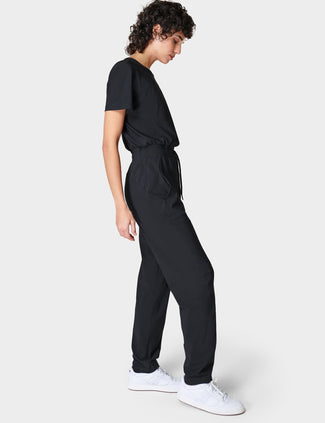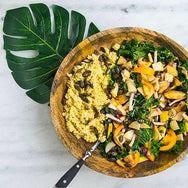Words by Phoebe McRae
Dopamine has been a buzzword in the wellness world for a few years now but somehow it's completely slipped under my radar. That is until last week, when an old colleague mentioned she was working on increasing her dopamine levels and I had absolutely no idea what that could possibly mean.
Naturally, I wanted to know more, so I went straight to the experts — Dr Ani Rostomyan, board-certified clinical pharmacist holistic health coach, and Dr Elizabeth Lombardo, celebrity psychologist, best-selling author and inspirational keynote speaker — to get the lowdown on all thing dopamine.

What is Dopamine?
As Dr Rostomyan tells The Sports Edit, “Dopamine is a neurotransmitter, derived from non-essential amino acid tyrosine. It is the precursor to norepinephrine and epinephrine, and is one of the catecholamine neurotransmitters in the brain.” Commonly referred to as one of the body’s ‘happy hormones’ (along with serotonin and endorphins), put more simply, it’s a chemical the body produces that helps drive your brain’s reward system and makes you feel good.

What Does Dopamine Do?
“Dopamine belongs to seven transmembrane G protein-coupled receptors (GPCRs) and plays an important role in the regulation of both motor and also non-motor functions in our body, such as cognition, sleep, learning, motivation, emotions, and neuroendocrine secretion,” says Dr Rostomyan.
“Dopamine's physiological effects are expressed by making us experience satisfaction, pleasure, [and] motivation," she continues, adding "when we feel good about our achievements, it’s because we have a distinct surge of dopamine in our brain.”
What Happens When You Have Too Little Dopamine?
According to Dr Lombardo, too little dopamine can cause serious issues. “Decreased dopamine levels can make you feel less motivated and enthusiastic about things," which can impact your life as well as those around you. "It [also] is related to depression, schizophrenia, and psychosis, among other mental diseases.”
How Do You Increase Dopamine?
If you’re looking to increase your dopamine levels, both Dr Rostomyan and Dr Lombardo believe that you should focus on your diet.
“Healthy diets including fresh fruits and vegetables, lean proteins (which contain L-tyrosine, [the] protein needed to make dopamine) like turkey, lean chicken beef, nuts and seeds, legumes, avocados, bananas, turmeric, magnesium, omega3-fatty acids all have beneficial effects on increasing your dopamine levels, along with regular exercise, getting enough sleep, mindfulness, physical therapy, meditation,” says Dr Rostomyan.
If you’ve already got your diet sorted, you may want to look at incorporating supplements as well. “Supplements such as probiotics, fish oil, vitamin D, magnesium, ginkgo, and ginseng may help enhance dopamine levels,” Dr Lombardo tells The Sports Edit.

What Happens When You Have Too Much Dopamine?
Surprisingly, there is such a thing as too much dopamine. “Being competitive, aggressive, and [having] poor impulse control are linked to too much dopamine — or too much dopamine concentrated in some portions of the brain and not enough in others,” warns Dr. Lombardo. It can also lead to disorders such as ADHD, binge eating, addiction, and gambling.
Conclusion
Understanding how dopamine affects you is more important than I realised and ensuring your dopamine levels are optimal is key. While you can attempt to increase dopamine naturally, it's best to talk to your doctor before making any drastic changes to ensure you're doing the best thing for your body. This is particularly important if trying to decrease your dopamine levels.




























































